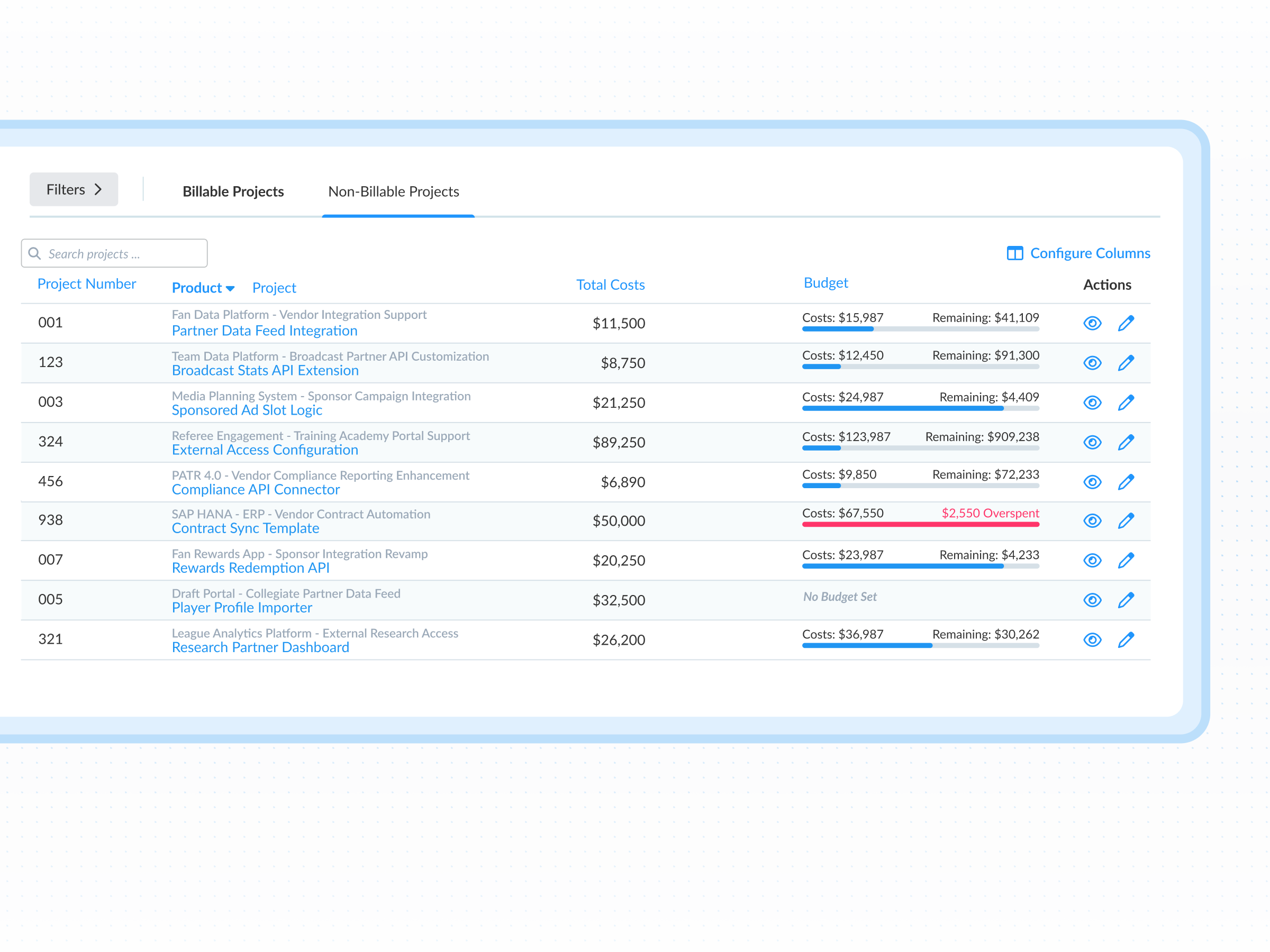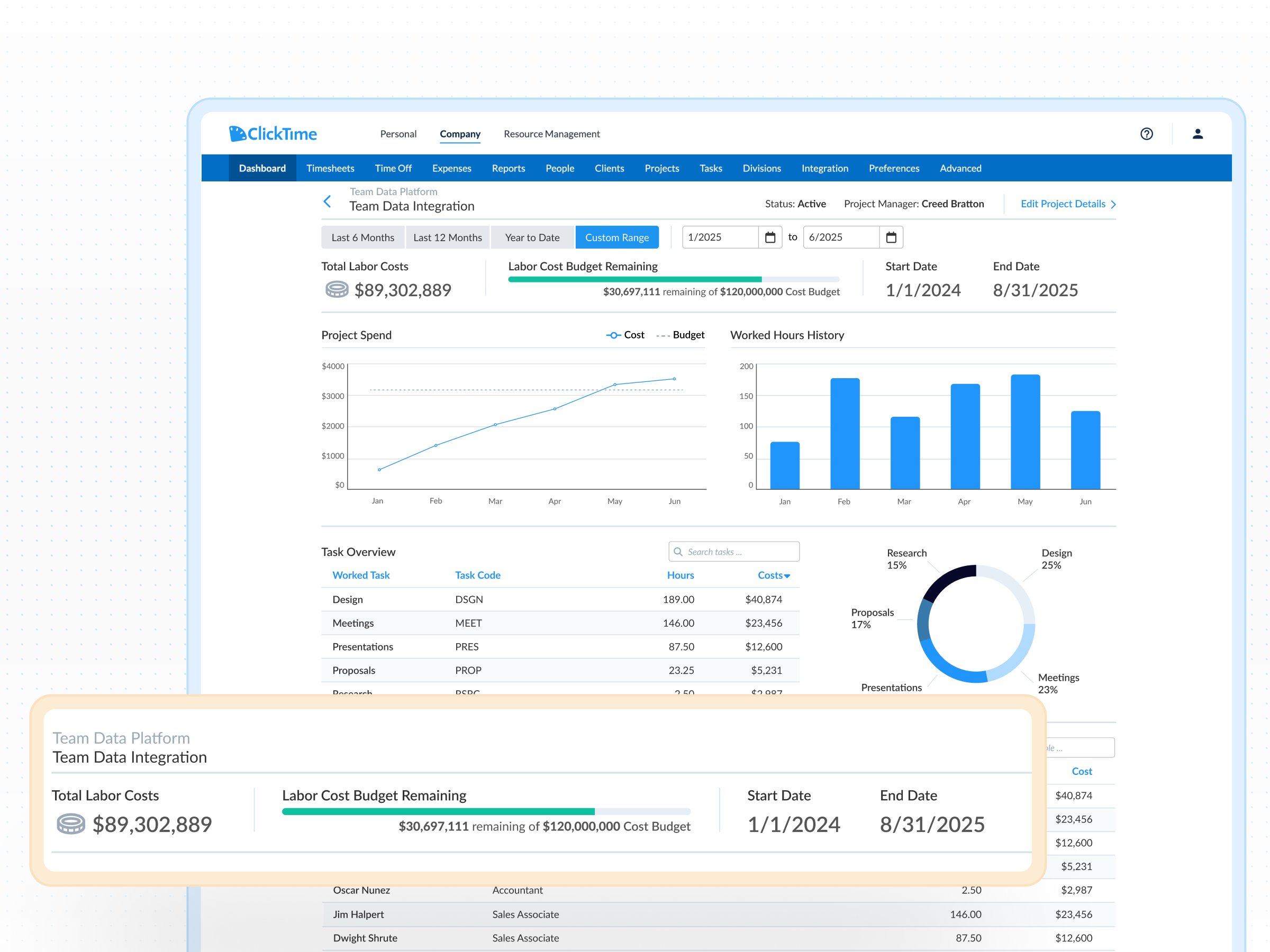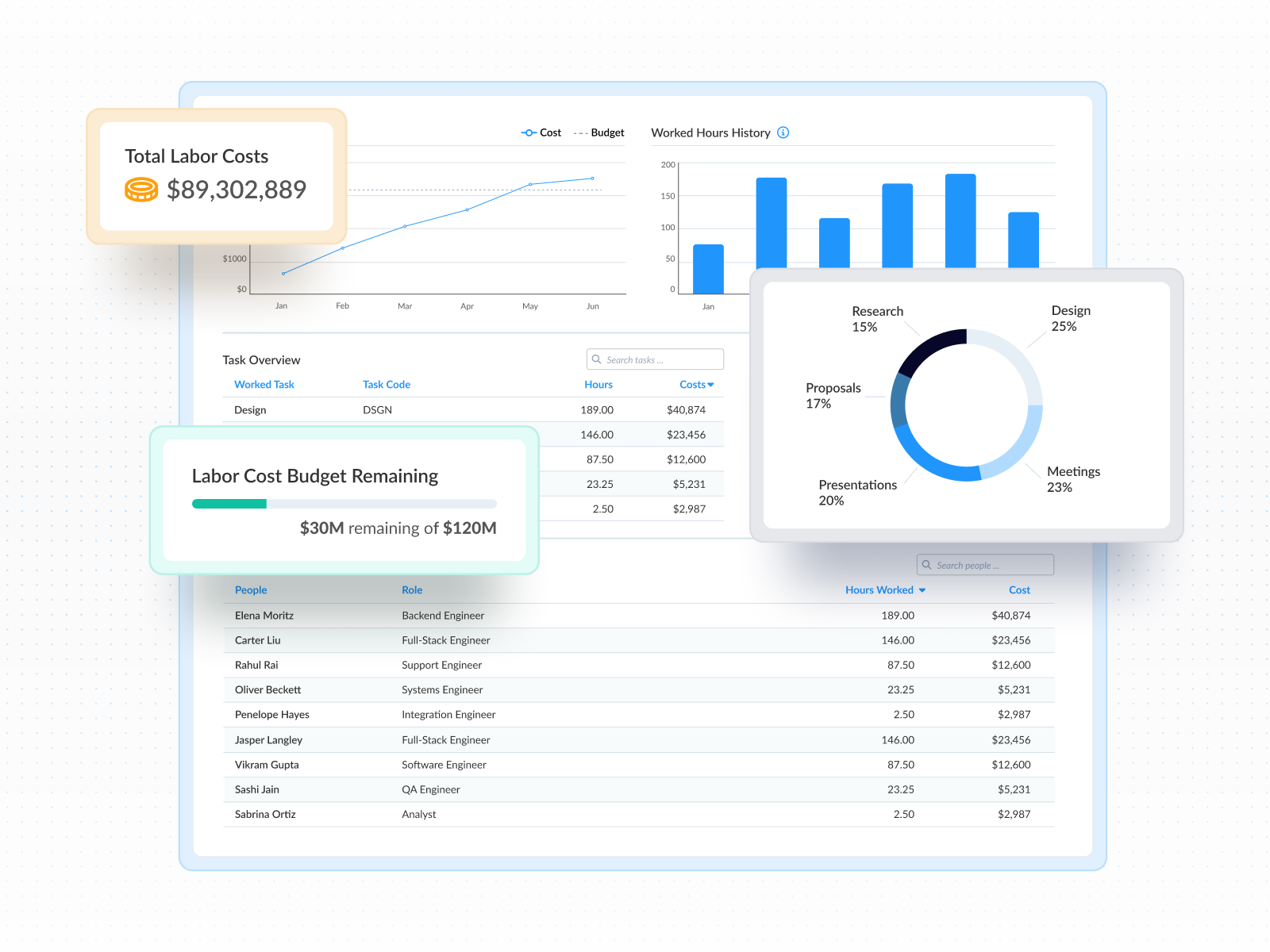Track budget vs. actual costs in real time
Real-time budget burn and labor cost insights update project budget health as work happens. Labor costs are reflected in real time — not just at month-end — so managers can see exactly where projects stand and adjust before overruns impact margins.
- Live budget health across your entire portfolio
- Threshold alerts flag cost risk as it happens
- Drill into any project to see hours and cost drivers











